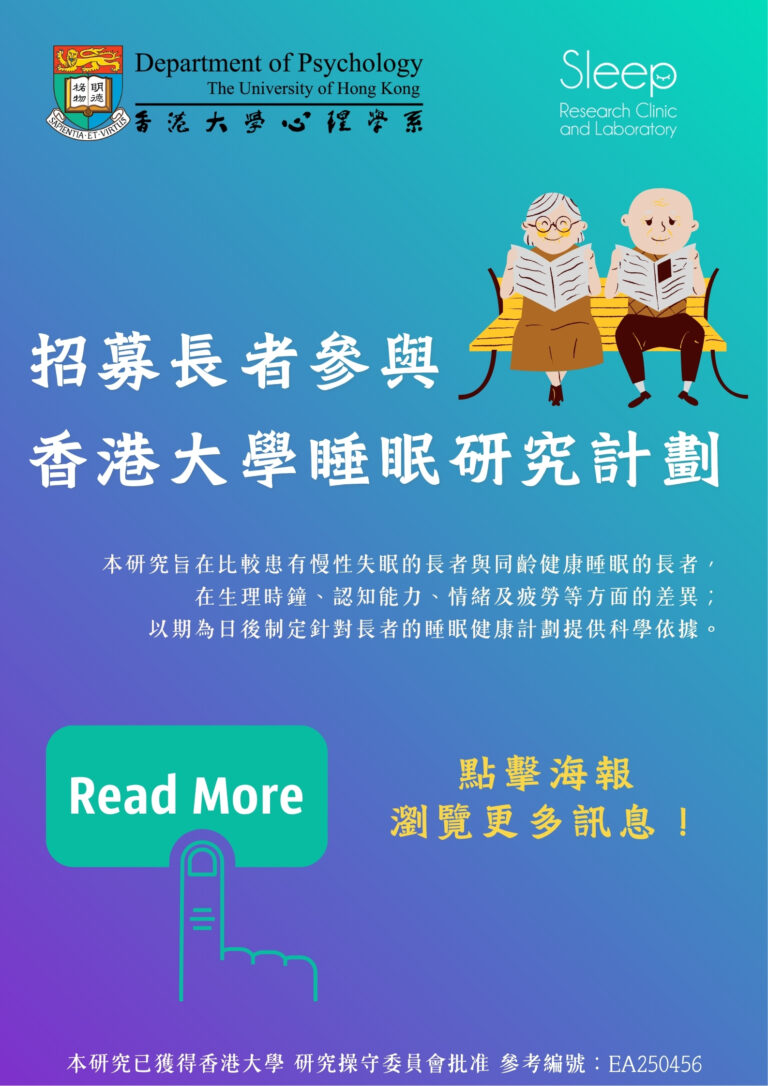Research Projects
We endeavour to understand how sleep affects our daily function and our physical and mental well-being. Our ultimate goals are to translate research into practice and to inform the development of treatments and interventions to improve sleep and health.
Key Research Areas
Circadian Rhythm
Sleep & Cognition
Sleep Disorders
Sleep Interventions
Current Projects

Sleep in Older Adults (SOA)
The goal of this case-control study will characterize circadian, cognitive, and clinical profiles of older adults with/without chronic insomnia.

Treatment study for Depression in Youths with Delayed Sleep Phase (DELAY Trial)
The goal of this prospective randomised controlled trial is to examine the effects of cognitive behavioural therapy and bright light therapy in youths with unipolar depression and evening chronotype. The study aimed to examine the efficacy of CBT-D and CBT-D with bright light therapy in reducing depression severity in adolescents with depression and eveningness?

Treatment Study for Insomnia in Pregnant Women with Comorbid Insomnia and Depression
This study aims to test the efficacy of group-based cognitive behavioural therapy for insomnia (CBT-I) and app-based CBT-I (developed by a group of psychiatrists and clinical psychologists) in combination with usual care (UC) in reducing the severity of insomnia and depression in pregnant women with comorbid insomnia and depression, when compared with UC plus group-based health-related psychoeducation control. This study also examines the effects of group-based CBT-I and app-based CBT-I on subjective and objective sleep and mood measures, quality of life measures as well as mother-infant-relationship.

Treatment study for Insomnia for Youths on Impulsivity and Risk taking Behaviour
The study aims to test the effects of CBT-I on impulsivity and risk-taking behaviors in adolescents, assessed by both self-report and objective measures when compared with the psychoeducation control. We also examine whether changes in sleep mediate the changes in impulsivity in youths with insomnia.

Reward processing and eveningness in youth depression: A longitudinal EEG investigation
The primary objective of this study is to elucidate the underlying mechanisms of youth depression and eveningness chronotype, with a particular focus on investigating whether eveningness contributes to deficits in reward processing among adolescents. The research will primarily employ polysomnography (PSG) and electroencephalography (EEG) techniques to examine sleep patterns and neural activity associated with reward processing in adolescents exhibiting an evening chronotype. Moreover, this study adopts a longitudinal design to investigate the temporal dynamics of these factors and their potential changes over time.

Sleep and Circadian Disturbances in Children & Adolescents: A Longitudinal Cohort Study
This study aims to investigate the biological, psychosocial, and cognitive-behavioural factors associated with sleep and circadian disturbances in children and adolescents with attention deficit hyperactivity disorder (ADHD) as compared to those typically developing children and adolescents.

Personalised online sleep intervention and offline support programme for parents of children with SEN
This study aims to provide personalised online and offine practical support to parents of children and adolescents with SEN using a stepped care model. Through our app, we incorporate evidence-based pediatric sleep practice recommendations and strategies to support the need of taking care of young people with SEN and sleep problems.

Treatment study on Insomnia for Youths with ADHD
The study aims to test the efficacy of CBT-I in combination with usual care in reducing the severity of insomnia symptoms in adolescents with comorbid ADHD and insomnia.














